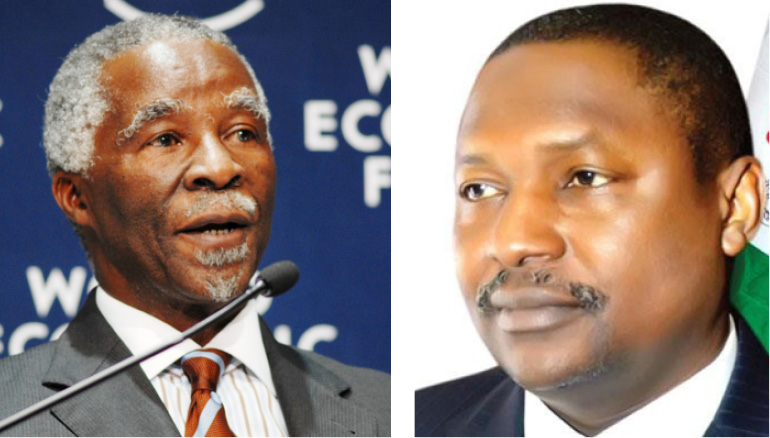In July 2017, the suspension of Nigeria by the Egmont Group resulted from the non-establishment of an autonomous financial intelligence body.
Though now fully re-enlisted, Nigeria was during the period of the de-listing, no longer a recipient of the types of information needed to track and checkmate the scourge of Illicit Financial Flows (IFF), which has continued to prove a major setback to national development.
The suspension was an embarrassment for the President Muhammadu Buhari-led Federal Government, which in December, 2016 signed the Open Government Partnership (OGP). Under the partnership, the country entered 14 commitment areas such as open contracting, extractive transparency, revenue transparency as well as ease of doing business.
The Egmont Group of Financial Intelligence Units is a global network of inter-governmental bodies with 154-member countries including the USA, United Kingdom and Germany. It is a body for sharing criminal intelligence and financial information bordering on money laundering, terrorism financing, proliferation of arms, corruption, financial crimes, and access to international financial transactions.
Details of Nigeria’s return to the Egmont Group were highlighted at the just concluded briefing of the High-Level Panel (HILP) on Illicit Financial Flows (IFF) from Africa in Abuja on Friday. The panel, which is chaired by former President Thabo Mbeki of South Africa, points to Nigeria as the leader in the efforts against the IFF menace.
Illicit Financial Flows, according to the Presidential Advisory Committee Against Corruption (PACAC), is “money illegally earned, transferred or used. Any flow of money in violation of the laws in their origin or during their movement and or use.”
The driving role of PACAC and the office of the Attorney General of the Federation and Minister of Justice towards the restoration of Nigeria into the Egmont Group and the fight against IFF were examined during the conference. It was learnt at the conference that the enactment of the Nigerian Financial Intelligence Act by the Senate in 2017 was instrumental to the country’s recall to the group.
Former President Mbeki said the panel was constituted in January 2015 with requirement to submit reports of its work, which have not been done. He said Nigeria has responded well against the scourge of IFF and used very international engagement to push the agenda.
“One of the countries that have been taking up these matters very vigorously has been Nigeria. You see, for instance, a number of occasions when His Excellency, President Muhammadu Buhari, has raised this in major speeches, that this is a matter that has to be attended to,” he said.
“There are about $80 billion in these illicit financial flows. We as Africans need to do something to ensure we retain those resources within our continent to be able to address more effectively the challenges of our development.
“Now the decisions taken by the AU Summit spelt out the many different actions that need to be taken by the AU, some of which include the strengthening of state institutions like Revenue Service, Financial Intelligence Centre, Customs people. We need legislation to deal with money laundering, and various measures. It also requires that the rest of the world also participate with us in dealing with this matter,” he said.
According to the Executive Chairman of the FIRS, Tunde Fowler, there are reports that Nigeria and South African account for 70 percent of the funds said to be lost by African countries annually to IFF.
He identified multinational organisations, financial institutions and oil companies as the main industries that are involved in IFF and under remittance of taxes. He added that the agency has 140 ghost properties in the country for which no taxes or owners are known.
For his part, Prof Bolaji Owasanoye, of the Independent Corrupt Practices and Other Related Offences Commission, said PACAC has created an alternative platform, away from western nations, to discuss the issue of IFF to mainstream the issue as a global menace. He identified poor governance, weak regulatory structures, pressure for foreign investment as some of the drivers of IFF.
Explaining the strategies for Nigeria’s handling of IFF and reversal of the Egmont Group suspension, the Attorney General of the Federation Abubakar Malami (SAN) stated that in addressing IFF, the country is using institutions, legislation, technology, policy and international engagement.
He said policies like whistleblowing, Integrated Payroll Payment System (IPPS) and other innovations have discouraged fraudulent manipulation of salaries and wages, adding that the regularisation of Nigeria’s financial intelligence through the NFIU restored the country into the Egmont Group on financial intelligence.
“This international engagement of the panel is timely in the sense that we need international collaboration now much more than any other time to ensure that the current elements do not benefit from the proceeds of crime,” he said.
In his speech, the Deputy Executive Secretary and Chief Economist of the United Nations Economic Commission for Africa, Dr Abdalla Hamdok, lamented the rate African resources are being taken away by Africans and western nations, who are now beneficiaries.
“It is unfortunate that the poorest part of the world is subsidizing the rich,” he said.
He announced that the commission has commenced a pilot project involving nine African countries, including Nigeria, to address the issue of illicit financial flows.
The conference brought together officials from the Ministry of Justice, Economic and Financial Crimes Commission (EFCC), Nigerian Customs Service, Federal Inland Revenue Service (FIRS), Corporate Affairs Commission (CAC), Central Bank of Nigeria (CBN), NFIU and the Securities and Exchange Commission (SEC) among others.
The consensus was that for African states to reverse the trend of IFF, collaboration and information sharing is very critical. The decision to submit a report from the Abuja conference for African Heads of Governments may well be the commencement of the right step.




